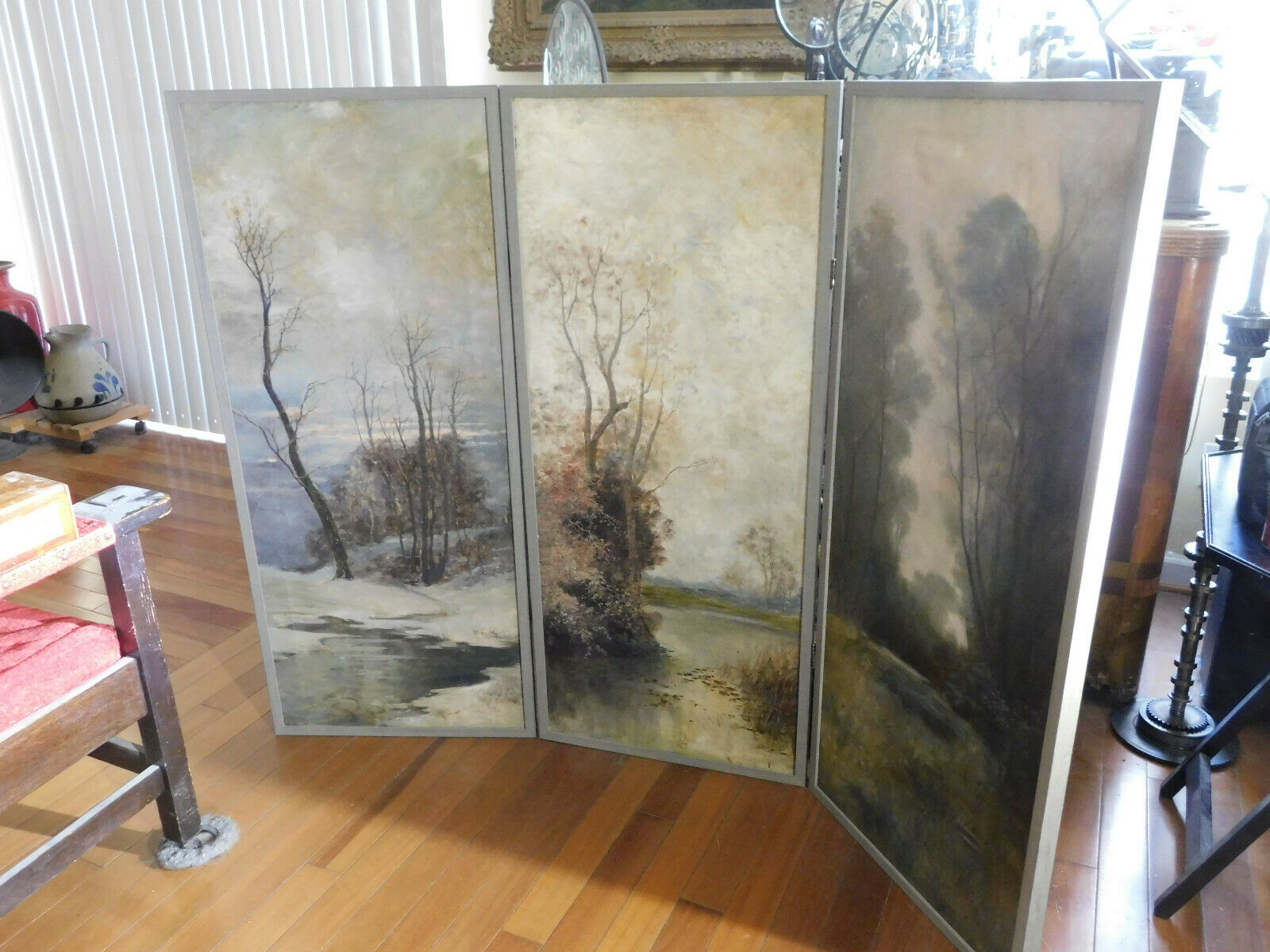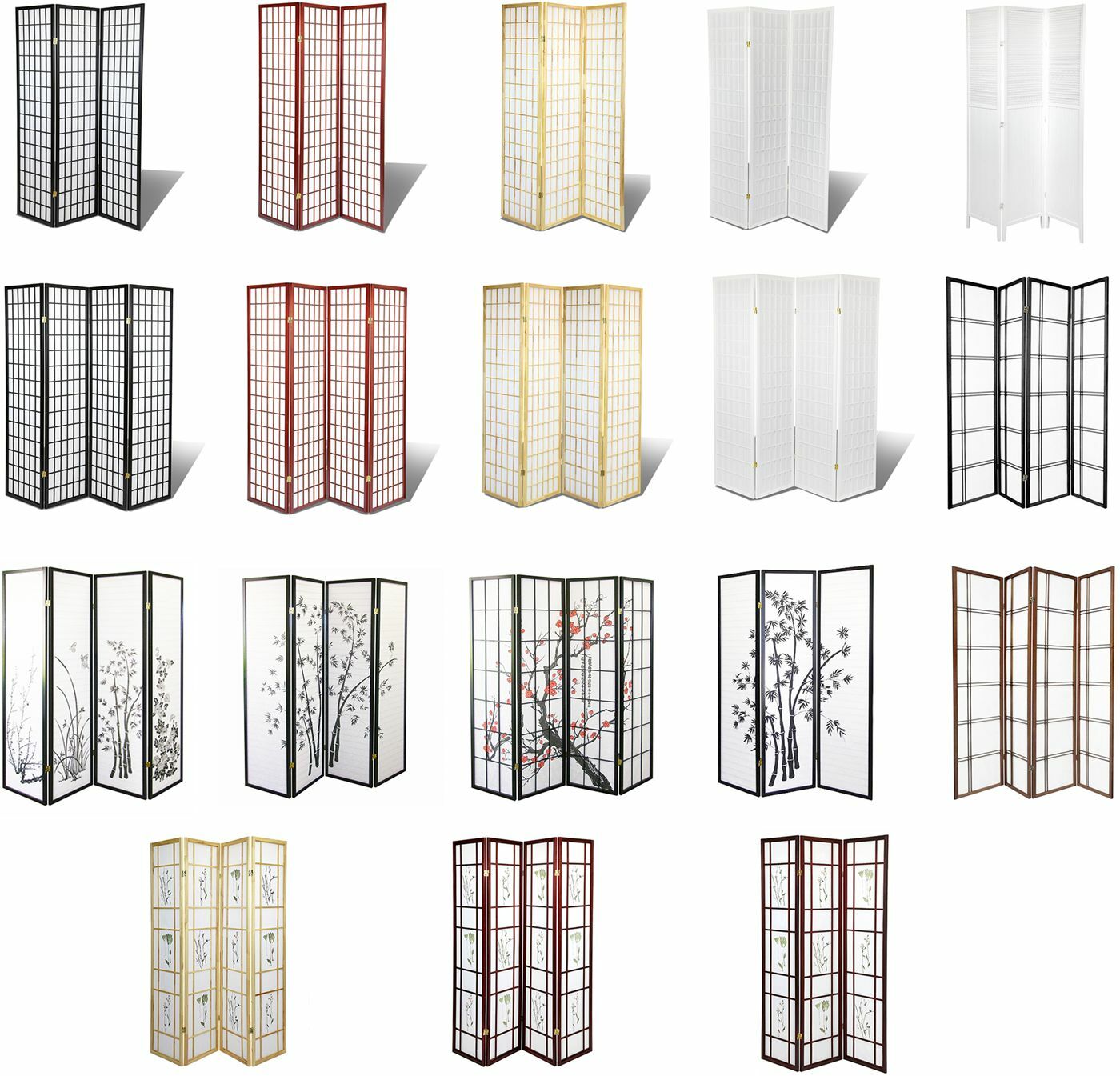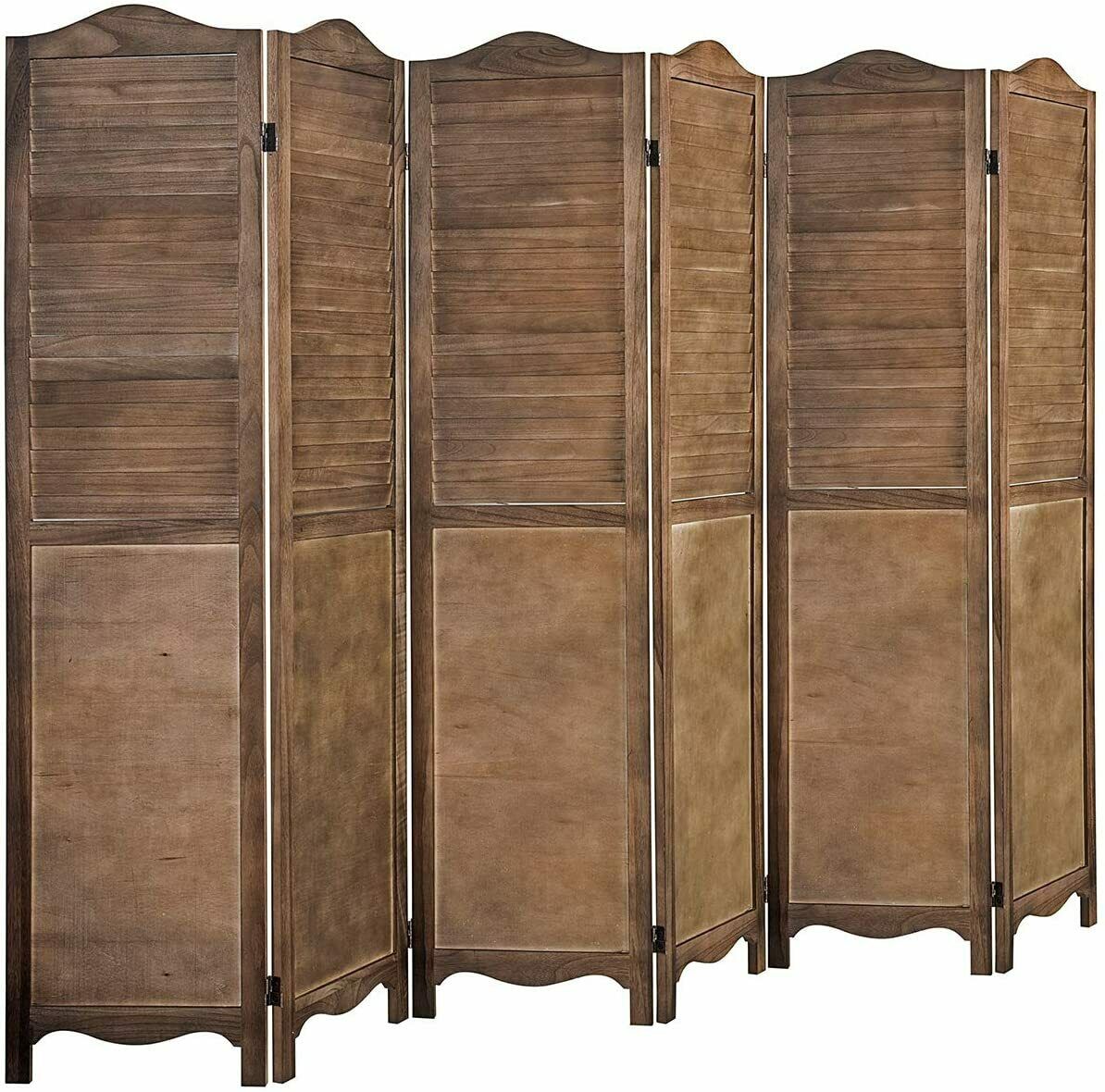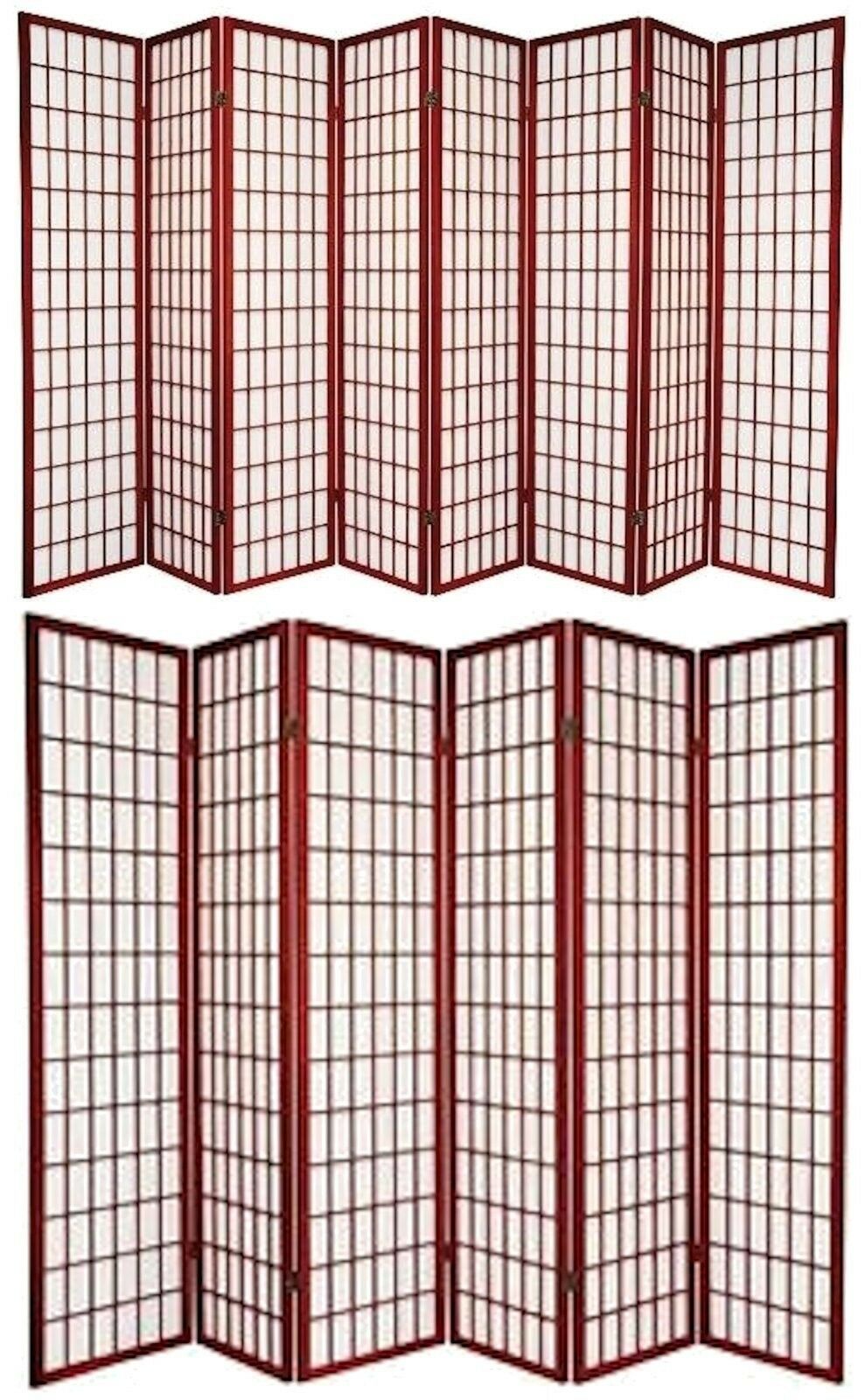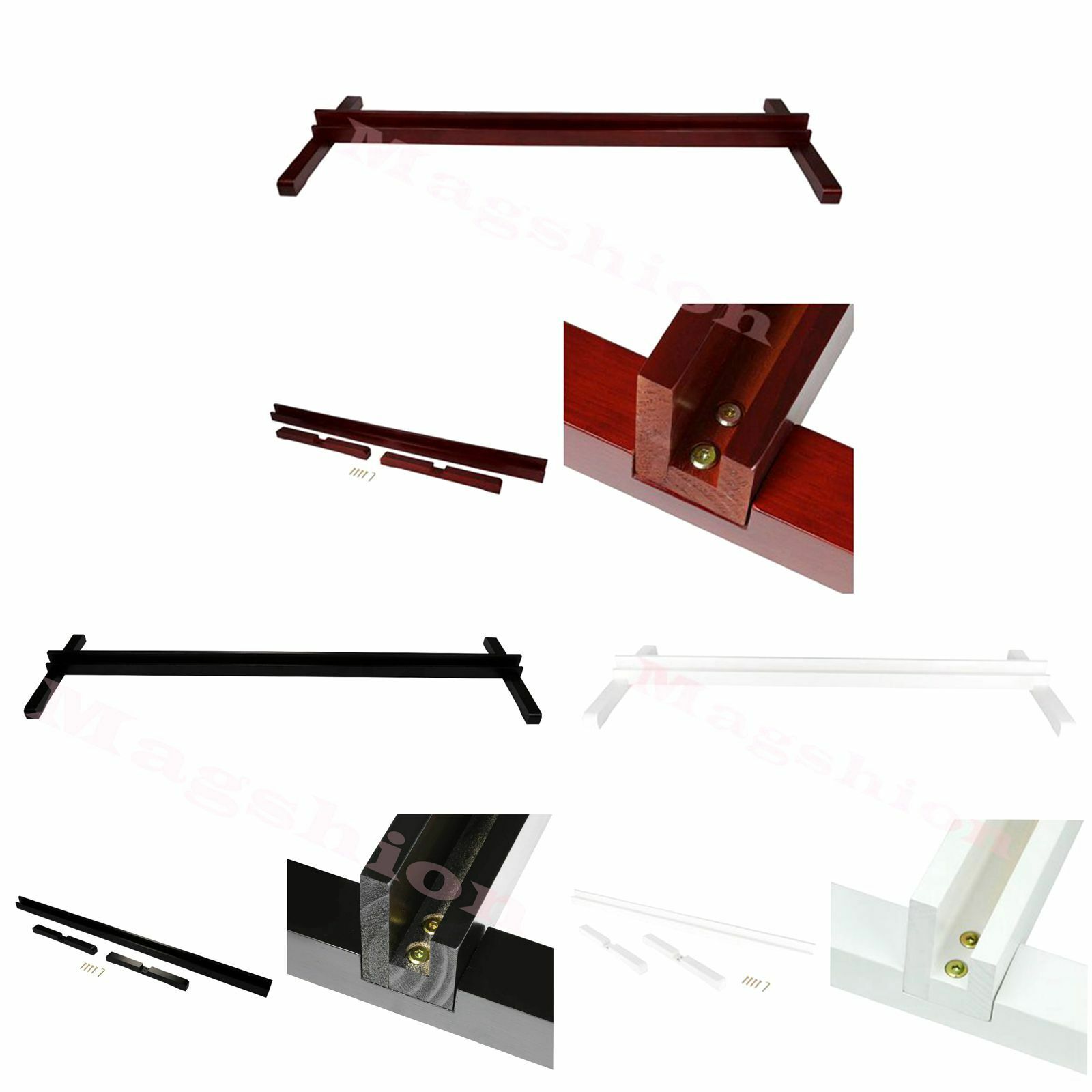-40%
Adolf Kaufmann Master Artist Winter-Spring-Summer-Original Art-ScreenRoomDivider
$ 3991.68
- Description
- Size Guide
Description
Adolf Kaufmann Master Listed Artist Winter-Spring-Summer-Antique Original Art-Painting made into a room divider/Screen. ScreenRoomDivider. This was 3 Large Original Oils on Canvas impressionist scenes of Winter-Spring-Summer. The 3 paintings where restored by a professional restorer who had worked at a museum at one time and now owns his own frame shop.The painting on the right the upper portion the restoration is noticable because the area that was restored was extensive. I brought it to his attention to possibly combine the 3 paintings after restoration to make a room divider- screen that folds and opens to a divider.He also incorporated these special hinges from Japan that make the divider completely fold into one unit. This project took over a Year and a half. The paintings where acquired from an estate auction along with another Adolf Kaufmann painting that is up for sale in this store. This person that I acquired these Adolf Kaufmann paintings from had a extensive collection of Kaufmann paintings. It is extremely Rare to find this many Kaufmann paintings in one collection let alone this set of 3 paintings of the 3 seasons for sale at this time. This is a ONE OF A KIND ITEM! Please look at the pictures and there are more if needed. This is a "Best Offer" item so do not be shy with the offers! Major Antique Original Art Work Paintings made into a room Divider-Screen!!!!! MEASURES: Framed Each Painting-48 1/4" x 20 3/4". Unframed- 47 1/4" x 19 3/4". 3 Screens together- 63 1/2" x 48 1/4". Fantastic RARE item! PLEASE WAIT FOR INVOICE! ------------------------- BIOGRAPHY:------------------------ Adolf Kaufmann was born in Opava, Austrian Silesia (now Troppau, the Czech Republic ) on May 15, 1848. After his early educated in Opava, where he began to draw and paint without any formal training, he traveled to Paris, France where he studied painting with Emile van Marcke de Lummen, a successful realist painter of peasant life thriving in a verdant and idyllic nature.During this period Kaufmann is recorded as traveling extensively throughout central Europe, Russia, Poland, the Netherlands, Turkey and the Levant. He visited, and studied for a while in Berlin, Dusseldorf and Munich before settling in Vienna, Austria, where, together with fellow painter Carl Freiherr van Merode, a painter of portraits and interior genre scenes, Kaufmann opened an atelier and school in 1900 to teach the art of painting to young ladies.
Soon after, Kaufmann returned to France where he painted for a while in Normandy and sections of Brittany before settling in Paris to study the new Barbizon style of landscape painting. The small village of Barbizon in north central France near the Forest of Fontainebleau became the home of a number of artists including Theodore Rousseau and Jean-Francois Millet who developed a style that celebrated the noble life of peasants and the beauty of unspoiled nature.
Having studied German Romantic painting in Dusseldorf and Munich, Kaufmann soon developed a unique and muscular version of the Barbizon approach with his use of a high contrast chiaroscuro and a dark, rich palette. Early in his career in Paris, Kaufmann won a number of awards and commissions from his entries in the Paris Expositions which helped to introduce and popularize the work of the new Barbizon style of landscape painting in France.
Kaufmann returned to Vienna where he was elected to membership in the Vienna Academy of Fine Arts in 1908. During this period he exhibited his paintings in exhibitions in the Kunstlerhaus of Vienna, the Munich Glass Palace and in the semi-annual competitions at the Great Berlin Art Exhibitions.
From 1909 to 1914, Kaufmann traveled and painted in Holland, the South Tyrol, Northern Italy, and in Norway where he developed a series of colorful, panoramic and atmospheric fjord and landscape paintings. On his return to Berlin, Kaufmann’s paintings were purchased by a number of important collectors including members of the Austrian Royal Family, the French Emperor Napoleon III, Russian Czar Nicholas II, and Queen Isabella II of Spain.
Today, Kaufmann’s landscape and topographical work is included in national and private collections throughout the European Union, Great Britain, Russia and the United States. Throughout his early career, Kaufmann curiously signed many of his paintings with pseudonyms including A. Guyot, A. Papouschek , G. Salvi, J. Rollin, L. Bayer and other names which have stimulated scholarly and commercial interest in this successful and prolific artist’s work as well as interest in a number of attributions bearing variant signature that surface for sale in European auction houses especially the Dorotheum in Vienna each year.
Two years after his trip to Norway, Kaufmann died in his adopted home of Vienna, Austria, at the age of 68 years in 1916.
Gary R. Libby art historian, curator and author
